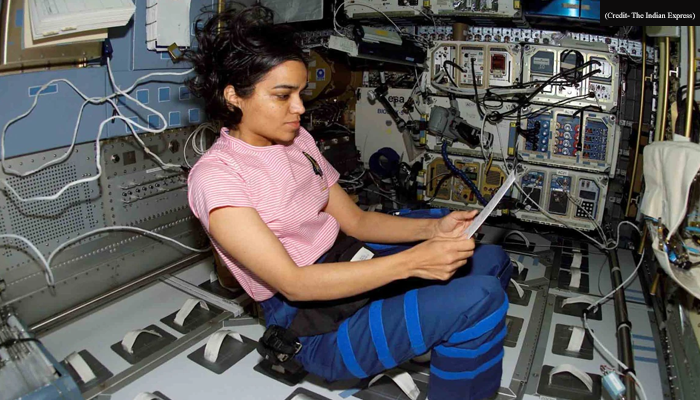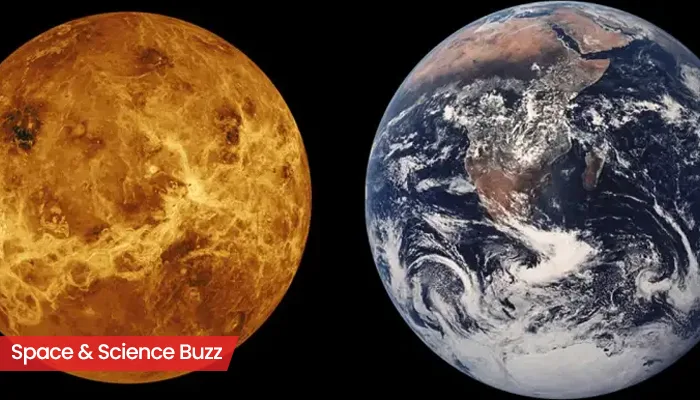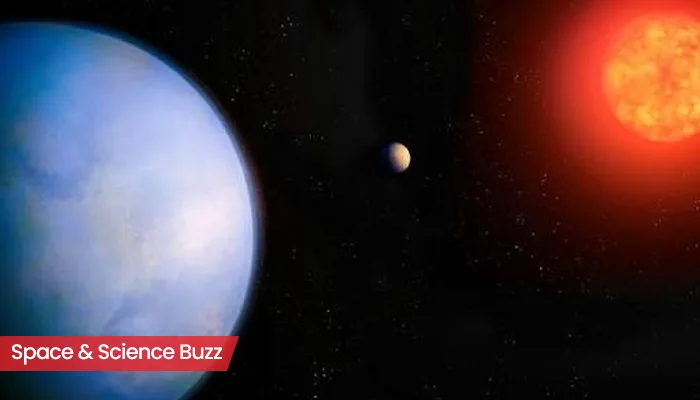NASA SpaceX Crew-7 Returns From Space: How Human Body Reacts After Space Travel?
- Admin
- 1 year ago
- 3 minutes read

An astronaut can get both physically and psychologically affected after Space travel.
Recently Four astronauts of NASA SpaceX crew-7 returned to the Earth after half-year mission at the International Space Station (ISS). The crew conducted hundreds of experiments and technology demonstrations, including the first ever study of human response to various spaceflight durations, and an experiment of growing food on the space station.
According to the space agency: “NASA astronaut Jasmin Moghbeli, ESA (European Space Agency) astronaut Andreas Mogensen, JAXA (Japan Aerospace Exploration Agency) astronaut Satoshi Furukawa, and Roscosmos cosmonaut Konstantin Borisov, returned to Earth splashing down at 5:47 a.m. EDT on 12th March”
Have you ever dreamed of visiting space? Due to extremely severe environment, when an astronaut returns from space, it may have several health consequences. In this article, we will discuss about those consequences what an astronaut go through after returning from space.
Space sickness:
The gravity is significantly low in the space than the earth. This lead to a consequence called ‘space sickness.’ During this situation an astronaut feels headaches, nausea, and vomiting. Vestibular organ, located deep inside inner ears plays an important role to keep human bodies balanced against heavy gravity effect. However, in low gravity area like space, the situation changes and brain gets confused how to react, leading to space sickness. It takes some days to accomodate to the condition. After that, when an astronaut returns to the eath again, the situation reverses. So, an astronaut feels symptoms of space sickness again.

Swollen face:
Again, gravity plays a trick here. Generally, in the earth, Blood and other body fluids are pulled by gravity into the lower part of human body. However, in space, fluid tend to accumulate in upper portion of the body due to lack of gravitational pull, leading to face swelling. Also, astronauts face nasal congestion due to swelling of mucous membranes of the nose. Due to this, Astronauts face dizziness while standing up. This situation is known as orthostatic hypotension. Astronauts experience weakening of the heart muscles too.
Weakened bones and muscles:
You might have seen astronauts performing duties in space flying. This is possible due to significantly low gravity. This results into weakening of lower back and leg muscles. Even bone loss is observed in several cases. It is mandatory to perform two hours of exercise in space station for every astronaut. Scientists are trying to figure out effective remedies to prevent bone density loss.

Effects of radiation:
The atmosphere surrounding the earth provides oxygen to breathe, protects from harmful UV radiations. As there is no atmosphere in outer space, human body face extreme effects of radiation. Even it can have cancerous consequences. Thus, after returning from space, astronauts are kept in spacial room the eliminate the effect of radiation.
Intense stress:
Space travellers has to experience intense stress due to space suit. In earlier days, there were not enough space in spacecraft, so they had to perform activities at a tiny confined space. However, the area has increased a bit nowadays to conduct experiments. With advanced technologies, astronauts can establish connection with their family to reduce the stress.
Splashdown of Dragon confirmed – welcome back to Earth, @AstroJaws, @Astro_Andreas, @Astro_Satoshi, and Kostya! pic.twitter.com/iugZ6Awwvn
— SpaceX (@SpaceX) March 12, 2024
(Video courtesy: @SpaceX X handle)
After returning from the space, the astronauts are kept in complete isolation for some days to eliminate the probable risk of microorganism growth or any sort of contagious infections.
The efforts of astronauts to understand the unknown world is truly superheroic!





.webp)
.WEBP)
.WEBP)
.webp)
.webp)


.webp)